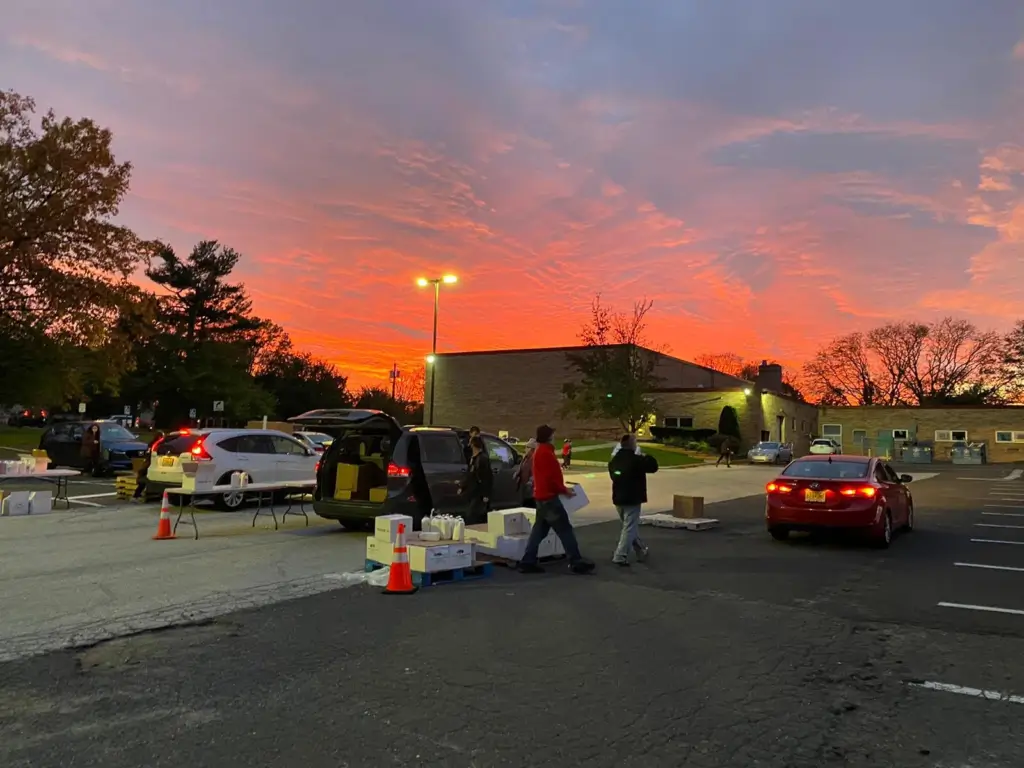What is Kosher Parking? Understanding the Concept
Kosher Parking is a unique concept in Orthodox Jewish communities, where parking practices align with religious traditions, especially during Shabbat. In this article, we’ll explore Kosher Parking’s origins, essential elements, and its cultural significance. We’ll also tackle the challenges and controversies it brings, along with the humor often found in its broader interpretation. Join us as we unravel the intricate blend of faith and daily life reflected in Kosher Parking.
What is What is Kosher Parking?
Kosher Parking is a set of parking regulations and practices primarily observed in Orthodox Jewish communities. It is designed to facilitate the observance of Shabbat (the Jewish Sabbath) and other religious customs. The key aspect of Kosher Parking is ensuring that vehicles are parked in a way that respects the prohibition against driving during Shabbat and certain Jewish holidays. This often involves parking cars before Shabbat begins and ensuring that parking spots are within walking distance of residences and synagogues, allowing community members to attend religious services without violating religious laws. Kosher Parking also emphasizes community cooperation, cultural awareness, and respect for religious practices to create a harmonious coexistence in urban areas with diverse populations.
The Cultural and Religious Background of Kosher Parking
Kosher Parking is a unique practice rooted in Orthodox Jewish culture, mainly designed to support Shabbat observance. On Shabbat, from Friday evening to Saturday evening, Orthodox Jews avoid driving, following their religious laws. To respect this, Kosher Parking ensures cars are parked before Shabbat starts and remain unused until it ends. This practice is crucial because it allows community members to walk to their synagogues, as driving is prohibited during Shabbat. Additionally, Kosher Parking reflects a deep cultural respect for religious practices. It’s an adaptation of ancient traditions to modern life, balancing religious observance with the practicalities of living in urban settings. Community cooperation is key in this practice, with both Jewish and non-Jewish residents understanding and respecting these special parking rules. Thus, Kosher Parking is not just about where to park; it’s a meaningful expression of faith and community unity.
Key Aspects of Kosher Parking
Kosher Parking, practiced in Orthodox Jewish communities, involves critical elements for its success. First and foremost, meticulous pre-Shabbat planning is essential, where vehicles are strategically parked before Shabbat begins, respecting the prohibition against driving during this holy time. Equally important is the requirement that parking spots be conveniently situated within walking distance of residences and synagogues, facilitating easy access without violating Shabbat rules.
Furthermore, adherence to local parking regulations is crucial to ensure compliance with broader community norms while accommodating religious observance. At the heart of this practice lies community cooperation, not only among Orthodox Jewish community members but also with their non-Jewish neighbors. Such cooperation fosters a harmonious environment, where everyone understands and respects these customs, allowing religious observance to proceed without inconvenience to others.
In essence, Kosher Parking seamlessly integrates ancient religious traditions with modern urban living, emphasizing community unity, reverence for religious customs, and adherence to local ordinances.
Challenges and Controversies Surrounding Kosher Parking
Kosher Parking, aimed at facilitating religious observance, faces challenges and controversies, particularly in diverse communities. Limited parking spaces can lead to tensions, and misunderstandings arise when non-Jewish residents are unfamiliar with these practices. Conflicts may emerge when local parking regulations clash with Kosher Parking norms. Effective communication within the community and with neighbors is crucial to prevent disputes. Promoting cultural sensitivity and understanding can help mitigate conflicts. Engaging with the broader community to explain the significance of Kosher Parking and its impact fosters mutual respect and cooperation. Overall, these challenges highlight the importance of cultural awareness and sensitivity to ensure harmonious coexistence in mixed-demographic areas.
The Humor and Misinterpretation of Kosher Parking
Online, “Kosher Parking” has become a source of humor, with memes and jokes sometimes misrepresenting it as an exaggerated or peculiar practice. However, it’s crucial to grasp the genuine religious significance behind Kosher Parking. This practice is deeply rooted in Orthodox Jewish culture, primarily concerning Shabbat observance and respecting religious laws. While the online humor can be lighthearted, it’s important to approach it with cultural sensitivity. Understanding the context and religious beliefs that drive Kosher Parking allows us to appreciate its importance and respect the traditions of Orthodox Jewish communities, even amid the playful online interpretations.
Conclusion
In conclusion, understanding and respecting the cultural and religious significance of Kosher Parking are essential for fostering harmony and cooperation in diverse urban communities. By acknowledging the deeply rooted traditions and religious observance that underpin this practice, we can promote mutual respect among different groups of residents. This awareness helps bridge any gaps in understanding and ensures that everyone can coexist peacefully while accommodating the needs of Orthodox Jewish communities. Ultimately, in areas with diverse populations, embracing cultural sensitivity and valuing the traditions of others is a fundamental step towards building inclusive and harmonious communities.
FAQs
1. What is Kosher Parking?
Kosher Parking refers to a set of parking regulations observed primarily in Orthodox Jewish communities, aiming to facilitate the observance of Shabbat and other religious practices.
2. Why is Kosher Parking necessary?
It is necessary to ensure that vehicles are parked in a way that respects the prohibition against driving during Shabbat and certain Jewish holidays, allowing community members to walk to synagogues and maintain religious observance.
3. What are the key elements of Kosher Parking?
Key elements include pre-Shabbat preparation, proximity to residences and synagogues, adherence to local regulations, and community cooperation.
4. How do non-Jewish residents and neighbors respond to Kosher Parking?
Responses vary, but it’s important for non-Jewish neighbors to understand the religious context behind Kosher Parking and respect the practices of their Orthodox Jewish neighbors.
5. Are there specific parking regulations for Kosher Parking?
Specific regulations may vary by community, but they often involve parking vehicles before Shabbat and ensuring that parking spots are within walking distance of homes and synagogues.
6. What challenges can arise from Kosher Parking in mixed-demographic areas?
Challenges may include limited parking spaces, misunderstandings among non-Jewish residents, conflicts with local regulations, and the need for effective communication.
7. How can communities promote cultural awareness and sensitivity regarding Kosher Parking?
Community engagement, education, and open communication are key to promoting cultural awareness and understanding, ensuring peaceful coexistence.
8. Is there humor associated with Kosher Parking?
Yes, there is humor online, with memes and jokes sometimes exaggerating the concept. However, it’s important to remember the genuine religious context behind Kosher Parking.
9. How can we balance religious observance and community needs in urban areas with diverse populations?
Balancing these needs requires open dialogue, cultural sensitivity, and mutual respect among diverse community members. It’s about finding common ground and accommodating each other’s beliefs and practices.
10. Are there any legal implications of Kosher Parking?
In most cases, Kosher Parking operates within the framework of local parking regulations and does not have specific legal implications. However, it highlights the importance of respecting religious freedom and cultural diversity.







